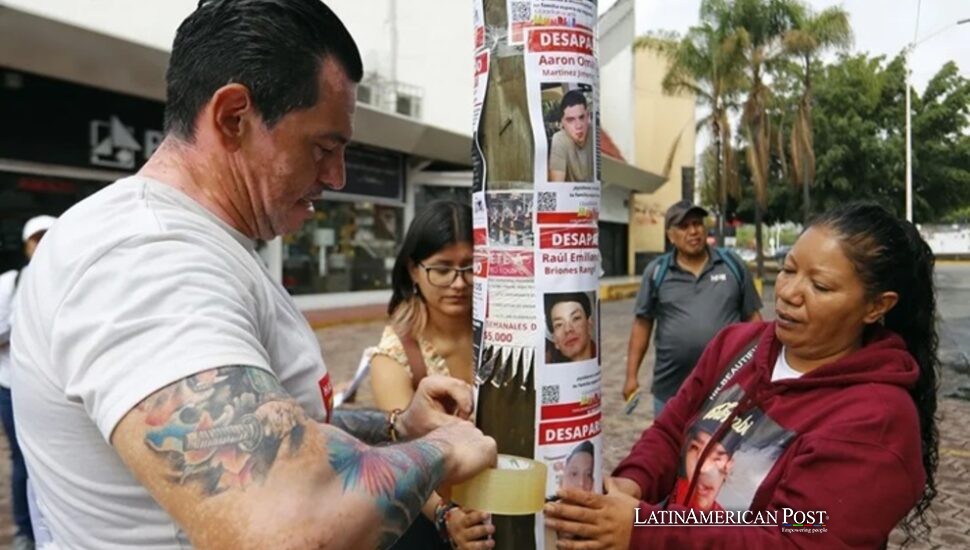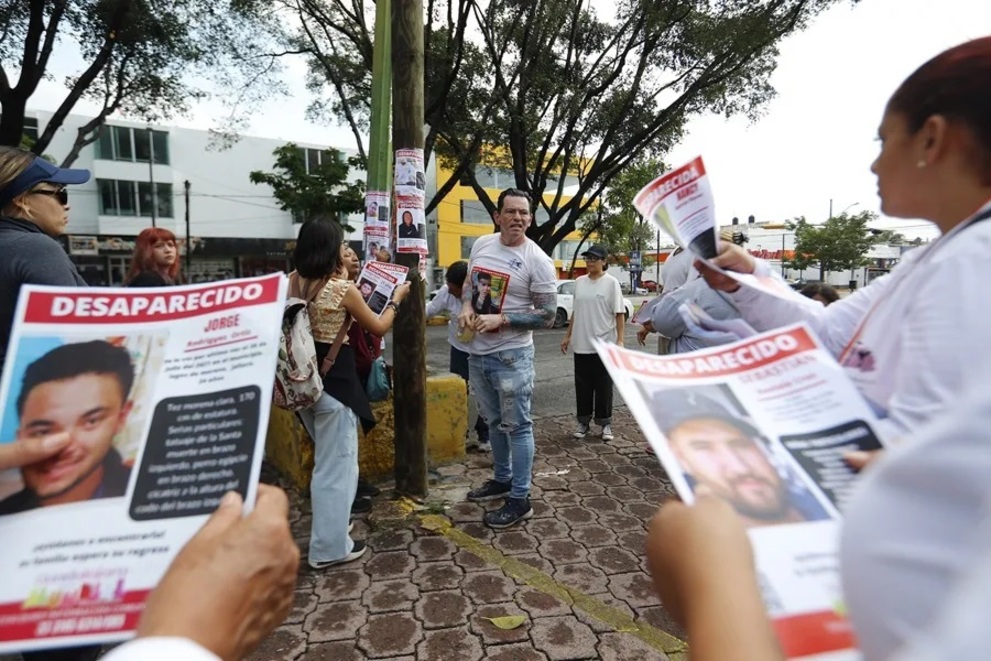Mexico’s Guadalajara Faces Shadowed Disappearances Before the World Cup Global Spotlight

Next year’s World Cup will bring roaring crowds to Mexico’s Guadalajara, a tech hub with a volcano-shaped stadium ready to host the world’s game. But beneath the glossy surface lies a darker reality: cartel disappearances that haunt families and cast shadows over the celebration. As cartels tighten their grip and Washington debates military strikes, parents still search for children who never came home, the Washington Post reported.
A city’s glittering promise collides with a mother’s nightmare
On the surface, Guadalajara seems every bit the modern metropolis it wants to showcase: glass towers, buzzing tech campuses, and a sleek stadium shaped like a volcano. But the postcard fractures the moment you follow Carmen Lucía Carrillo, a mother who has walked the same desperate path since her 27-year-old son, Daniel, vanished in 2022.
She had just driven past him at a traffic light—lean, smiling, wiping windshields for spare cash—when two men, one wielding a pistol, shoved him into a blue SUV. He had a new baby at home and plans to find steadier work. In minutes, he was gone.
“He was a free spirit,” Carrillo told the Washington Post, remembering the boy who once built a Batmobile out of Legos and cracked jokes through lean years. But on November 22, 2022, the laughter stopped. The day became an endless absence.
Guadalajara, capital of Jalisco, is now ground zero for Mexico’s disappearances: more than 15,700 people missing in this state alone, out of 132,000 nationwide. The United Nations has opened an unprecedented inquiry into whether these disappearances are systematic and facilitated by state complicity. It is a staggering reality to place alongside the World Cup’s spotlight: a city branded as Mexico’s Silicon Valley by day, and by night, a place where people vanish.
Disappearances as proof of who really controls the ground
There was a time when Guadalajara’s cartels looked outward, moving cocaine and marijuana north while leaving the city relatively untouched. That time is gone. “What changed, in a radical way, is that territorial control became key,” sociologist Jorge Ramírez Plascencia told the Washington Post. Cells of the Jalisco New Generation Cartel now seed themselves across neighborhoods, profiting from extortion and street-level drug sales. Their control is invisible—until someone disappears.
That invisibility complicates U.S. calls to strike cartels like terrorist groups. Cartels are not fringe cells of ideologues but major employers interwoven with local police and politics. Killing a few leaders, experts told the Post, will not unravel structures built on community dependency and fear.
Daniel’s case shows how that control operates. His girlfriend heard whispers that he had been taken to La Escuelita—”the little school”—a cartel training camp. His mother was left clinging to rumors, begging for leads, pleading on television. “They don’t know the pain, the frustration, the hole it leaves inside you,” she said. Her prayers became physical: she asked to feel whatever her son felt, and her whole body ached. The cartel’s grip was no longer abstract; it had rearranged her life.
La Escuelita, the Searching Warriors, and the dread beneath the dirt
Early this year, Carrillo received an invitation. A grassroots group of mothers and relatives, Guerreros Buscadores—the Searching Warriors—were heading to Teuchitlán, a cartel-controlled town west of Guadalajara. They had heard rumors of a mass grave.
On March 5, the families climbed fences into a ranch known as Izaguirre. What they found was chilling: barbed-wire obstacle courses, piles of bullet casings, makeshift ovens, and 154 pairs of shoes. They filmed it all. Their leader, Indira Navarro, called it an “extermination camp.” Authorities later confirmed it was a training ground for recruits, but denied evidence of mass killings. Survivors began contacting journalists, saying they had been lured by fake job ads and forced into combat training. Some said recruits died during drills or were executed when they failed.
The name Carrillo had whispered in anguish—La Escuelita—suddenly had a map coordinate.
At first, she couldn’t bear to watch the videos. Later, she opened Facebook and froze. A clip showed a pair of black jeans held up to the camera. They looked exactly like the ones she had bought her son weeks before he disappeared.

EFE@Francisco Guasco
The World Cup will bring spectacle; the families will get the truth
World Cup organizers know how to choreograph a narrative: aerial shots of cathedrals, mariachi music under colonnades, mezcal tastings, a stadium glowing like fire under the night sky. Guadalajara will deliver all of that. What it will not easily show are the apartments serving as cartel puntos, the SUVs where men vanish, or the camps where teenagers are broken into soldiers.
For many, the World Cup will be pride and relief. For families like Carrillo’s, it will sting: proof that the city can mobilize for global spectacle while doing little for mothers who spend their days combing ravines. Mexico has demonstrated its ability to mobilize immense resources for international events. The test this time is smaller but deeper: can it listen to 132,000 mothers asking the same question—where is my child?
Washington’s talk of drone strikes may make headlines, but Guadalajara’s story cautions that solutions must begin in neighborhoods, with honest policing, transparent investigations, and protection for witnesses. No missile strike can teach a mother how to stop searching or erase the dread when new shoes surface in a shallow grave.
Carrillo still joins the searching brigades. She still parses rumors, steels herself against the following video. The stadium will glitter for the cameras, but just beyond the frame, another truth hums beneath the soil: a city’s greatness is not measured by its spectacle, but by how fiercely it answers when a mother calls her child’s name.
“We get no support, no answers, no justice,” Navarro told the Post, speaking for families who refuse to give up. “All we have is our desperation and the determination to find our loved ones.”
Also Read: Colombian Spark Ignites Bayern’s Season as Díaz Delivers Instant Impact
The World Cup’s whistle will blow, the matches will end, and the crowds will leave. But for Guadalajara’s searching families, the game never stops. Their vigil outlasts every goal, every broadcast, every cheer. And it will still be there, long after the final whistle.





